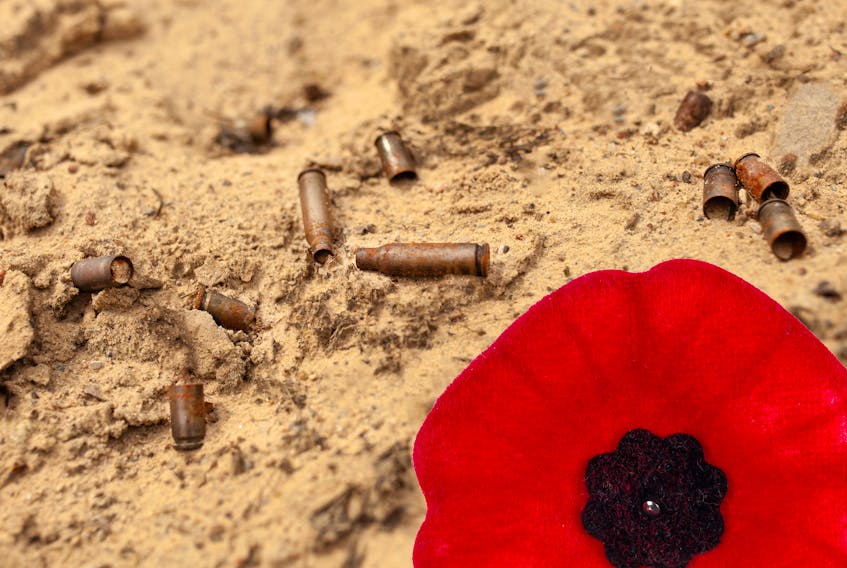Every year at this time we all turn our attention to the thousands of youngsters who went off to Europe to deal with Kaiser Bill and his so-called “brutish Huns” who were causing so much trouble. Some returned “in full bloom,” others came home with horrendous physical and/or mental damage, and others never came home at all, but were left in little pieces on the battlefields.
In this first industrial war, there was less face-to-face combat, but high explosives made it easier to kill without seeing the light go out of the eyes.
Anybody who fails to feel the collective pathos and the individual tragedies must surely lack some essential human attribute — these were, for the most part, young men, “the flower of the nation’s manhood” as they were aptly called.
Of course, there were many girls and women who at that time signed up for nursing and other non-combatant roles, whose young hearts were broken repeatedly by the severity of the injuries and the destruction of healthy young bodies.
Here in Newfoundland, in Canada, in the U.S.A., in Australia and New Zealand and in Britain, families mourned, and mourn still, the loss of their beloved heroes. The same sadness was felt, and is not forgotten, in France and Belgium, in Germany and Russia, and in all the other lands that were embroiled in the First World War. Many countries lost an important part of their population. The total cost was about 20 million deaths, almost exactly half military and half civilian. Those involved, as combatants and as civilians, sustained a similar number of serious injuries, at about 20 million.
In the early 20th century, most of the heavy work was done by hand. The steam engine did take some of the burden, but strong young men and women kept the farms, the factories and the fishing boats going. The First World War took a great bite out of the working population, a loss that was felt for years after the Armistice had been signed. If the casualties are looked upon only as economic units, their loss was a serious setback. But as sons and daughters, as husbands and fathers, as brothers and sisters, they were each irreplaceable.
What always comes to my mind at this time of year is the complete and unnecessary use of human lives to settle what amounted to a family squabble. King George V of England was a first cousin to both Tsar Nicholas of Russia and to Kaiser Wilhelm of Germany. The Russian and the German rulers were also third cousins. European monarchies tended to intermarry, keeping the economic output of the continent under their dynastic control.
Whatever their strategic plans or their family problems may have been, to involve such a huge number of the young men and women of their empires in such a miserable struggle is beyond belief. The arrogance, the assumption of entitlement, the callousness that allowed these old men to condemn so many girls and boys to a filthy, desolate death in a sea of mud is one of the most persuasive arguments against government by monarchy.
The Second World War proved that civilian rulers can be just as wasteful of human lives as royalty ever was.
What’s more, we still haven’t managed to devise a less wasteful way of settling our differences.
I wonder if this 21st century will see the invention of a peaceful method of solving human problems. I hope so, but we haven’t made much effort to achieve it yet.
Ed Healy
Marystown
Related story:









